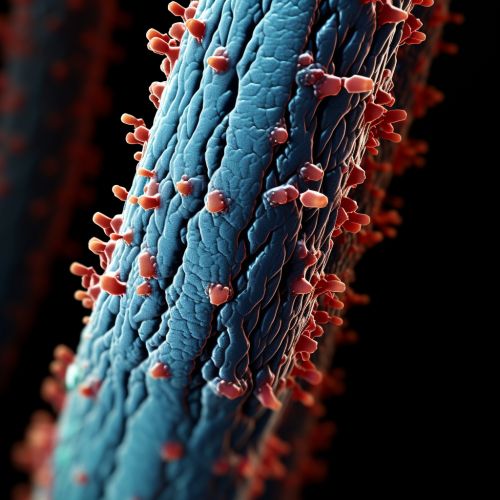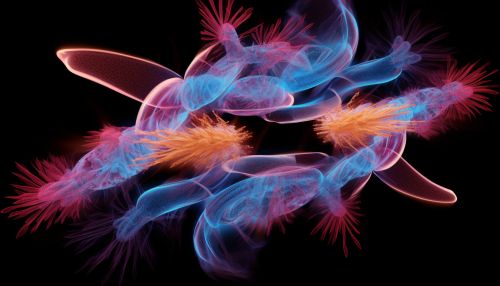Chromosome 14
Overview
Chromosome 14 is one of the 23 pairs of chromosomes in humans. People normally have two copies of this chromosome. Chromosome 14 spans about 107 million base pairs (the building material of DNA) and represents approximately 3.5 percent of the total DNA in cells.


Genes
Chromosome 14 contains about 800 - 900 genes. Some of the genes on chromosome 14 are involved in the production of RNA molecules that help regulate the activity of other genes. These genes belong to a class of genes known as small nucleolar RNA (snoRNA) genes. Other genes on chromosome 14 are involved in the production of proteins that perform a variety of different roles within the body.
Genetic Conditions
Certain genetic conditions are related to genes on chromosome 14. For example, mutations in the PRKCH gene are associated with a higher risk of certain types of stroke. Another gene, the NKX2-1, is associated with brain-lung-thyroid syndrome. Mutations in the SLC25A26 gene on chromosome 14 cause a condition called SLC25A26 deficiency, which can lead to a variety of symptoms including developmental delay and muscle weakness.
Research
Research is ongoing to identify additional genes on chromosome 14 and to better understand their role in health and disease. This research will lead to a more comprehensive understanding of the genetics of disease and may lead to new treatments for genetic conditions.
